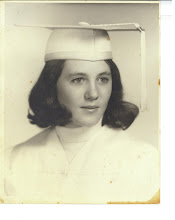There are numerous arguments as to what really started the American Civil War. Slavery, and states rights are the prominent two, but it was so much more complicated.
On April 12, 1861, when the first shot was fired y rebellious Confederates, bacross the water at Fedearl Fort Sumpter in Charleston Harbor, South Carolina, the country plunged into a hideous contest. When the surrender was signed on April 9, 1865 the country had suffered (almost to the day) four bloody years of war. It was North against South, pro-slavery versus abolitionist, believers in states rights versus the citizens in favor of Federal authority. But what it was more than anything was brother against brother, neighbor against neighbor, friend against friend.
And in the end, everyone proved to bleed the same color, and to die just as heroically, and the losses were equally grievous.
Historians have long studied the Civil War in broad spectrum analysis as well as minute examinations of individuals, specific battles, political turning-points and from a societal as well as a military perspective. Movies have been made, novels written and to this day visitors tour the battle sites that still remain.
We will never understand. We cannot sufficiently plumb the depths of the event to really, fully clarify for ourselves how our great democracy - less than a century old - fell prey to what had been seen in Europe in almost every country, since the inception of countries.
Why couldn't we stop it? Despite Lincoln's dark genius at the helm, the issue of slavery divided our nation. Southern states seceded because they refused to be dictated to by the very government our founding fathers had so brilliantly concieved in 1776. To say it was inevitable - as a "growing pain" of our young nation - cannot ease the agony that, to this day, remains like a new scar across our collective consciousness.
Confederate flags still fly, causing public outcry and reopening wounds. Grudges still remain, however old and useless now. Racial issues are still fraught with emotion and the memories of what our country has gone through.
But in the end, it was a trial by fire. Our nation survived, but with results that led to further carnage and death, and it left us bereft of a huge portion of a generation, or rather two, of our country's fittest men. Soldiers from 17 to 50 died by the hundreds of thousands. In fact the most often recognized casualty figure is 620,000 men. From a total population of 31,500,000.
Everyone from farmers to college professors went to war. Led by generals and commanding officers that had populated West Point as cadets together, but who faced one another, clad in blue or gray, across countless killing fields. And despite their differences, their ends all too often came the same way.
Crying alone as death stole their manhoods.
Sunday, June 14, 2009
Subscribe to:
Posts (Atom)
